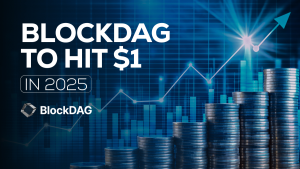
- Judge Failla’s ruling allows the SEC to continue its case against Coinbase, raising concerns about Solana’s classification as a security.
- The market initially reacted negatively, with Solana experiencing a 5.7% price drop, but it managed to recover most of its losses.
In a recent ruling by United States Southern District of New York’s Judge Katherine Polk Failla, the future of Solana (SOL) has come under scrutiny as the judge denied Coinbase’s motion to dismiss, allowing the Securities and Exchange Commission (SEC) to push forward with its case against the crypto exchange giant. This decision has broader implications for the Solana community, signaling potential regulatory challenges.
In her decision, Judge Failla denied Coinbase’s request to have the SEC’s accusations against it dismissed. The SEC claimed that Coinbase was acting as an unregistered exchange, broker, and clearing agency and that the unregistered offer and sale of securities was being made through its Staking Program.
The SEC maintains that Solana and Chilliz (CHZ) are securities, and the judge’s reference to SOL within the litigation context supports this position. Notably, SOL was particularly mentioned as an example where the SEC’s arguments gained momentum, and the SEC only needs to demonstrate that one of the 13 specified tokens is a security.
$SOL to be sued by the @SECGov
The #SEC only had to establish at least 1 of the 13 named tokens is a security… however the Judge specifically used $SOL as an example to corroborate with the SEC’s arguments
Expect a long painful journey for $SOL holders…
pic.twitter.com/AOEAh5K3ma
— EDO FARINA 🅧 XRP (@edward_farina) March 28, 2024
Implications of SOL’s Classification as a Security
Bill Morgan, a legal expert, highlighted the potential implications of SOL being classified as a security. Morgan emphasized the SEC’s argument that Coinbase facilitated transactions in crypto-asset securities and pointed out the risks facing Solana and similar tokens due to heightened regulatory scrutiny.
Judge Failla’s detailed examination of SOL’s operational history and fundraising efforts, particularly through initial offerings and sales on trading platforms, aligns with the criteria of an investment contract under the Howey Test. If SOL meets these criteria, it could face significant regulatory burdens and market dynamics reshaping.
Following the ruling, Solana’s price experienced a notable 5.7% drop, though it managed to recover most of its losses. At press time, SOL traded at $185. The market’s swift reaction underscores the uncertainty surrounding Solana’s regulatory status and potential impact on investor sentiment.
Judge Failla’s ruling detailed SOL’s operational history, highlighting its efforts to raise capital through initial offerings and sales on platforms like CoinList. These actions align with the criteria of an investment contract under the Howey Test, potentially leading to SOL’s classification as a security. Such a classification could introduce significant regulatory burdens and reshape the token’s market dynamics.
Recall that in the Binance litigation, the SEC had listed Solana, among other altcoins and initiatives related to gambling, as a security. Despite these referrals, the agency has not yet taken action against Solana Labs; however, the continuous regulatory investigation challenges Solana’s future trajectory and market adoption. The cryptocurrency industry faces ongoing uncertainty due to changing legal interpretations and enforcement measures, so stakeholders and market participants must be on the lookout.
Industry Response and Ethereum Comparison
The ruling has prompted reflections within the cryptocurrency community. As highlighted by Crypto News Flash, Anatoly Yakovenko, co-founder of Solana Labs, expresses solidarity with Ethereum amid escalating regulatory scrutiny. Yakovenko’s statement comes after reports suggesting that the SEC is investigating the Ethereum Foundation for potential security classification. This comparison underscores the broader regulatory challenges facing the cryptocurrency industry and the implications for blockchain projects like Solana.






















